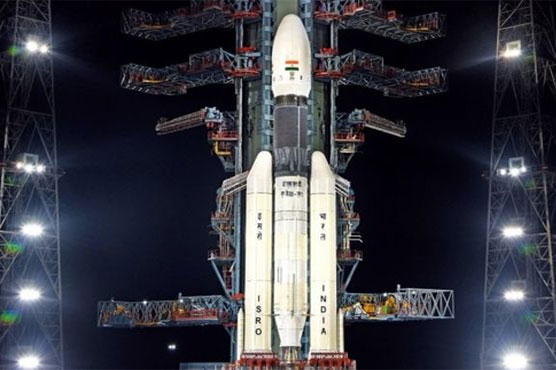India all set to send its second mission to moon's South Pole

The prequel to this mission was called Chandrayaan-1, which means "moon vehicle" in Sanskrit.
KANPUR (Reuters) - Final leg of preparations for India s ambitious mission to moon, Chandrayaan 2 completed on Sunday (July 14), as the 20-hour countdown for the final launch begun at 6.51 am (GMT 0121), said the Indian Space Research Organisation (ISRO).
The unmanned mission, called Chandrayaan-2, will involve an orbiter, a lander and a rover, which have been built by the Indian Space Research Organisation (ISRO).
The prequel to this mission was called Chandrayaan-1, which means "moon vehicle" in Sanskrit. Former ISRO scientist and the director of Chandrayaan-1 , Mylswamy Annadurai said that Chandrayaan-2 will take one step further from remote sensing to exploring in situ. He added that these missions would add up in the efforts of potential human sustenance on the moon.
If successful, this will be the Earth s first ever mission on moon s South Pole. It would also make India the fourth country after the United States, Russia, and China to perform a "soft" landing on the moon and put a rover on it.
The geographical mapping and motion planning software for Pragyan Rover of the mission has been developed by a team of mechanical and aerospace engineers in Indian Institute of Technology, Kanpur.
Professor Ashish Dutta, a member of the team, explained with the help of a prototype that Pragyan Rover will function on rocker bogie mechanism.
The rover has six wheels, which ensures that the other four or five wheels maintain the equilibrium and stability of the rover as one or the other two wheels move over bumpy surfaces.
The mission is scheduled to launch on Monday aboard ISRO s Geosynchronous Satellite Launch Vehicle Mark III. It will cost about 10 billion rupees ($144 million), ISRO said. ISRO s lander will attempt a "soft", controlled landing on the lunar surface on around Sept. 6.

